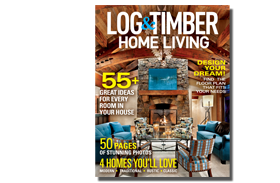
Pros:
-
For the elderly or those with long-term disabilities that impact their mobility, ranch- style living can be the difference between independence and assisted care.
-
You can save money on window cleaning, if you are inclined to do it yourself! Ranch homes may have a few high-level windows, but you should be able to reach the majority of them easily.
-
In the case of fire, home intrusion or other emergency, a single-story home is easier to escape from safely. Eliminating staircases reduces the possibility of injury for children, the elderly or even able-bodied people.
-
You can regain usable square footage by removing the staircase. In a two-story home, stairs can eat up 100 square feet or more. Reclaim this space (and save money on construction) in a ranch.
-
The low profile of a ranch home makes it less of a target for severe weather with high winds, like tornadoes or hurricanes.
See also The Benefits of Building a Ranch-Style Home
Cons:
-
It can be more costly to build out than up, primarily a result of excavating and setting the foundation. The footprint for a 1,800 square foot ranch-style log home is much larger than what’s required for the same square footage in a two-story house, which means you’ll need more land to build flat.
-
Roofs in northern climates often incorporate sharp pitches, enabling them to shed snow more easily. The ranch’s shallow pitched roof allows snow to accumulate more easily, and if you’re not careful, this could lead to ice dams.
-
Concrete has almost no insulating value (about R-1 per 8 inches) and to keep the first course of logs from being too close to the ground, log home builders and manu- facturers suggest a minimum of 12 inches or as much as 24 inches of the foundation protrude from the soil. The most aggressive heat loss in a house is typically through the above-grade foundation, and a ranch’s extended footprint results in more exposed concrete in this area.











